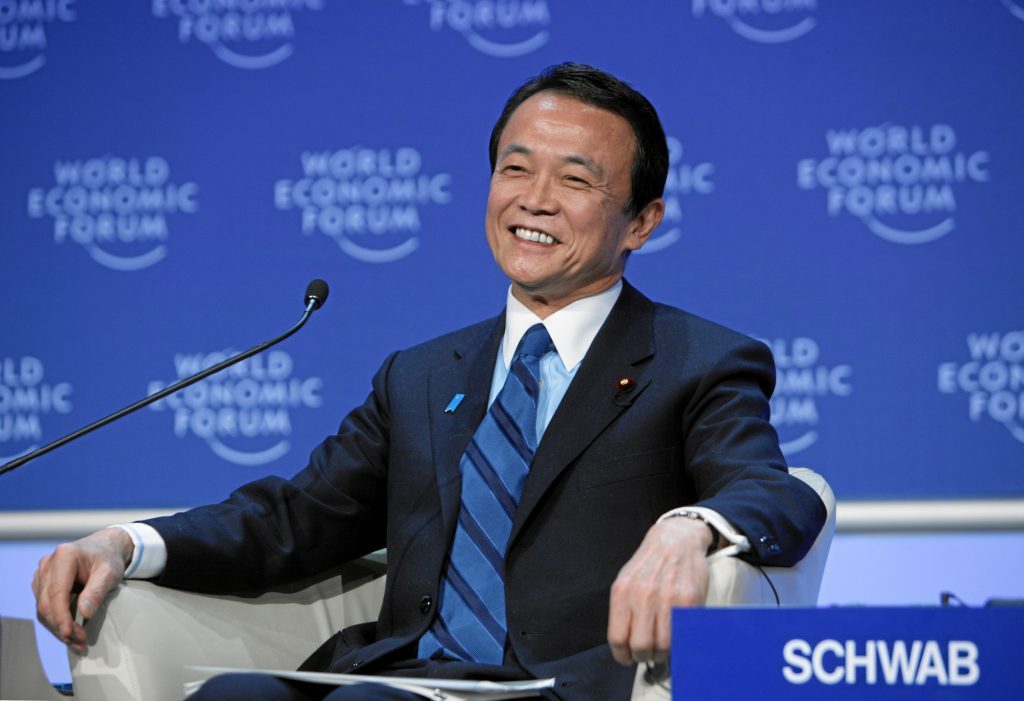Japanese Finance Minister Raises Concern Over U.S. Proposal on Global Digital Tax

Japanese Finance Minister Taro Aso has spoken out against a U.S. proposal to add a ‘safe harbor’ provision in the global plan to tax big tech companies.
Speaking to reporters after the G20 meeting in Riyadh on Sunday, Aso warned that the ‘safe harbor’ proposal could derail the efforts to reach an agreement on the rules for the global digital tax plan.
The digital tax proposal being developed by the Organization for Economic Cooperation and Development (OECD) would require tech companies to pay taxes in the countries where they are operational rather than paying where they are registered as subsidiaries.
A majority of finance leaders of G20 members have endorsed the proposal, but the ‘safe harbor’ provision demanded by the U.S. last year has caused a delay in the development of the new rules.
“I told my counterparts that Japan is very concerned about the ‘safe harbor’ proposal,” Aso told reporters. “It would extremely diminish the regulatory effect of what we’re trying to do. That is a view expressed by various countries.”
France and other G20 nations have also expressed concern about the provision. Critics of the scheme have argued that it would allow tech companies to choose whether to follow the proposed global digital tax or continue paying taxes under the current tax rules.
The digital tax proposal has been the top agenda at the two-day meeting attended by top finance ministers and central bankers from the world’s 20 biggest economy.
The OECD has emphasized that the global digital tax on multinational tech firms such as Apple, Amazon and Google could raise national revenues by as much as $100 billion a year.
French Finance Minister Bruno Le Maire warned on Sunday warned that digital tax regimes could emerge all over the world if there is no consensus on the digital tax plan by the end of 2020.
“For the first time there is wide consensus among the G20 members on the necessity of having a new international taxation system,” Le Maire said.
“We have to address the issue of digital companies making profits in many countries without any physical presence, which means without paying the due level of taxes,” he said.
“And we also have to address the key question of minimum taxation and the risk of having a race to the bottom on taxation,” he said.
U.S. Treasury Secretary Steven Mnuchin told reporters that the failure to reach an agreement could also trigger U.S. retaliatory tariffs.
“We’ve been very consistent in saying we think the digital services tax is discriminatory in nature against digital companies, and specifically a handful of U.S. companies,” he said. “The president was clear that we were proceeding with … reciprocal tariffs.”
The OECD reportedly wants to reach an agreement on the technical details of the tax plan by July this year. Le Maire warned that the big tech companies, most of which are situated in the U.S., would probably have to deal with different tax systems if no consensus has been reached by the end of the year.
“Lets be clear – either we have at the end of 2020 an international solution… clearly in the interest of all countries and digital companies, or there is no solution and … then it will be up the national taxes to enter into force,” he said. “Instead of having one single, simple solution, we would have many different digital taxes, all over the world.”